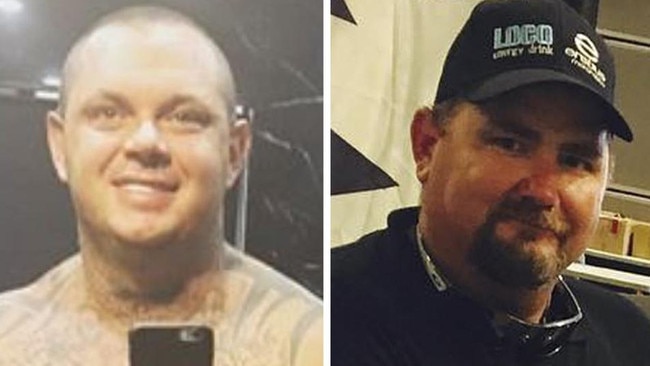Brodie Singh, Nathan Miller and Garry Brush cleared of murder after committal hearing, ODPP to review ruling
A review is underway into the ruling to discharge three alleged bikies of two Gold Coast murders at a committal hearing, the Office of the Director of Public Prosecutions has revealed.
Gold Coast
Don't miss out on the headlines from Gold Coast. Followed categories will be added to My News.
The Office of the Director of Public Prosecutions will review a Magistrate’s ruling to discharge three alleged bikies of two Gold Coast murders at a committal hearing.
Brodie Singh, Nathan Miller and Garry Brush were cleared of murder this month, after Magistrate John McInnes found the evidence was insufficient to send them to trial.
The trio, allegedly linked to the Lone Wolf bikie club, was accused of murdering ex-Comancheros bikie Shane Ross and his Monstr Clothing business partner Cameron Martin in Tallebudgera in October 2019.
Mr Ross and Mr Martin were both shot. Mr Martin was found dead in his car and Mr Ross was found three days later in nearby bushland on the corner of the Pacific Highway and Tallebudgera Creek Rd.

The Magistrate’s committal decision baffled Shane’s father Les Ross who is still struggling to come to terms with the death of his son.
“Everybody is just shattered,” he told the Bulletin recently. “I just can’t understand any of it.”
Senior police are disappointed by the outcome of the high-profile investigation.
But one officer told the Bulletin it was better to identify issues with evidence during the committal hearing, than lose at trial.
Investigators have the option to recharge if they find new evidence. But in a statement, police declined to comment on whether they will make such a move. They will now prepare a report for the coroner.


The Director of Public Prosecutions also has the powers to present an indictment to the court and proceed on the charges, despite the ruling of a magistrate.
An Office of the Director of Public Prosecutions spokesman said: “A review is being undertaken with respect to the committal ruling.”
Speaking generally, the spokesman said an ex-officio indictment would only be presented if it “had reasonable prospects of success in prosecuting the matter at trial, having taken into account the observations of the magistrate”.
Prominent Gold Coast lawyer Bill Potts said the move was “rare” but there had been cases where the prosecution had later secured convictions, despite the case failing at the committal hearing.
Mr Potts said the decision to proceed this way was not a “judgement that the magistrate got it wrong” but more often than not, “the prosecution may simply have a different view of the strength of their own crown case”.

“A committal hearing is a vital tool for the prosecution and the defence to clarify, simplify, and often examine the strengths and weaknesses of their own case,” he said.
Mr Potts said it was not uncommon for rulings to be reviewed by the DPP, especially for serious charges such as murder.
“ … They themselves will want to examine why their evidence was lacking, and whether there can be anything that ought to have be done,” he said.
“Sometimes the police will review their own investigations to see whether there were any leads that were not followed, or evidence which could be corroborated or supported.”




